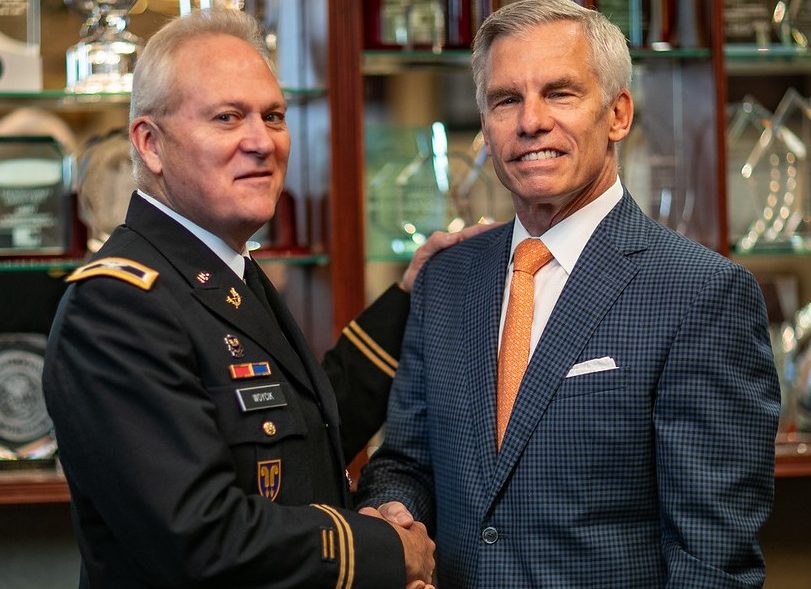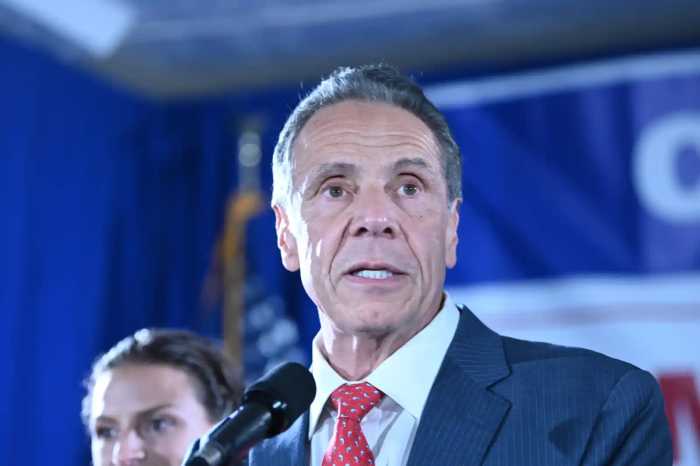The giving season is back, and this year there are more people in need than any time in recent memory.
How does someone so inclined to donate time or money prioritize where to channel donations? James Metzger, the founder, chairman, and chief executive officer of The Whitmore Group, a Garden City-based insurance agency, has some ideas, having turned his business success into prolific philanthropy to help the most vulnerable.
“There’s an enormous gratification one can derive from supporting charities, foundations, and communities,” Metzger says. “I really believe making a difference in someone’s life will make you feel better about yourself.”
He’s one of many benevolent people opening their hearts and wallets to give back to the community in its time of need. He spoke with the Press about why it’s important that those who can afford to give do so.
This conversation has been edited for length and clarity.
What is the philosophy that guides your philanthropy? I don’t use the word philanthropy ever. I like to refer to my involvement as community service. It’s more impressive when people give anonymously but I started with three people 30 years ago in Roslyn and I’ve worked assiduously over three decades to build my company and I feel that often my contributions are directed at my clients’ community, which enables my clients to benefit, I bolster my relationship with my clients, and I also strengthen my brand and enhance my public image. I don’t pretend that I’m just a wonderful human being that does so much for so many. I know the value of brand building and marketing and my giving has enabled me to strengthen my company and give more. And I don’t think there’s anything wrong with that. Maybe if I had sons or I pass on to the next generation they’ll start out established and maybe they could do it anonymously, which is the most honorable, but I’ve done it my way, which is to give back to the community and build Whitmore’s image in the community as well.
What inspired you to step up your charitable giving this year? One of the things I did this year was to make a financial donation to the Hempstead Police Athletic League (PAL). We’ve been introducing the game of lacrosse for a decade to predominantly Black kids in Hempstead who haven’t been exposed to the game in the way that I was, growing up in Huntington, or many of my former teammates and players by and large have been exposed to the game, in the suburbs and some of the more exclusive areas. I gave them a five-figure donation this year just to beef up their uniforms and equipment. That’s been personally a very rewarding giveback.
Why is that important? Historically Blacks dominate the NBA and the NFL, and I try to tell these young kids that lacrosse doesn’t have the sex appeal of football or basketball but the opportunity that exists there for their futures are much greater in that there isn’t the same level of competition. lacrosse can help them in so many ways and so many levels, including building relationships that will last a lifetime. But moreover lacrosse can help them gain entry to college, maybe attain a scholarship. There are 700 schools that play lacrosse in division I, II, and III. They could go to a division III school and have a lot of success as a lacrosse player and that could become the foundation upon which they build the rest of their lives.
Who else have you given to? The donations that I made to Hofstra University, that’s been an ongoing love affair that I have with my alma mater. I updated in February a locker room that I had already donated to and established. We did a major renovation. I had named it in honor of my former coach Harry Royale and my former teammate Vinny Sombrotto, who went on to become one of the greatest lacrosse players in the history of the game. It’s a state-of-the-art facility, in contrast to our locker room 40 years earlier that was like little tin-can lockers compared to that.
Much of your giving this year involved retired U.S. Army Col. E. David Woycik Jr. Why is that? He and I played together 40 years ago at Hofstra. He’s a prominent Garden City attorney and retired Army colonel. I decided to give him a six-figure donation. In his honor, he chose the charities, including America’s VetDogs, Canine Companions for Independence, and Big Brothers Big Sisters of Long Island. Dave and I are very close personal friends but I did not serve in the military. I went to the U.S. Naval Academy prep school for a year. He served in Desert Storm. He did a couple tours of duty and I really do admire that. I think there’s no greater sacrifice than going to war and defending the country. I just wanted to honor my friend for his service to the country.
How has the pandemic affected your giving? During Covid I found that the money is even more important to many of these organizations and charities. And I think because almost every industry, with the exception of maybe hand sanitizer companies, the vast majority of companies and industries have been negatively affected by Covid-19 — some, more than others.
What advice do you have for others who are unsure if they should donate? It’s hard to ask other people to do that. I will say that it’s the greatest joy in my life to be able to give back to the community. When you can impact someone’s life through which they derive benefit or directly to individuals, when the money makes a difference, I think it’s one of the great feelings one can have. I value people who lend their time and energy, their sweat equity, if you will. I admire that. I have been more inclined to give financially. I think the older I get the more important it has become to me.
Has being diagnosed with the coronavirus changed your perspective on giving? I’ve spent the better part of 12 days in bed. I lost my sense of taste, my sense of smell. I’ve had no appetite. I’ve been literally knocked-out exhausted. It’s made me think about people who are more vulnerable, have underlying health conditions, and how we utilize masks and social distancing to keep everyone safe. I’m fortunate in that I think I’m a young 60-year-old. I know that I had a relatively mild case compared to all the poor folks who’ve been on ventilators or spent a significant amount of time in the hospital. In terms of giving, it just makes me more concerned for my fellow man. Maybe I’ll focus on a give back to the medical community.
Anything else you want to add? I do believe that my future focus will be on veterans. We can’t do enough for those folks.





























